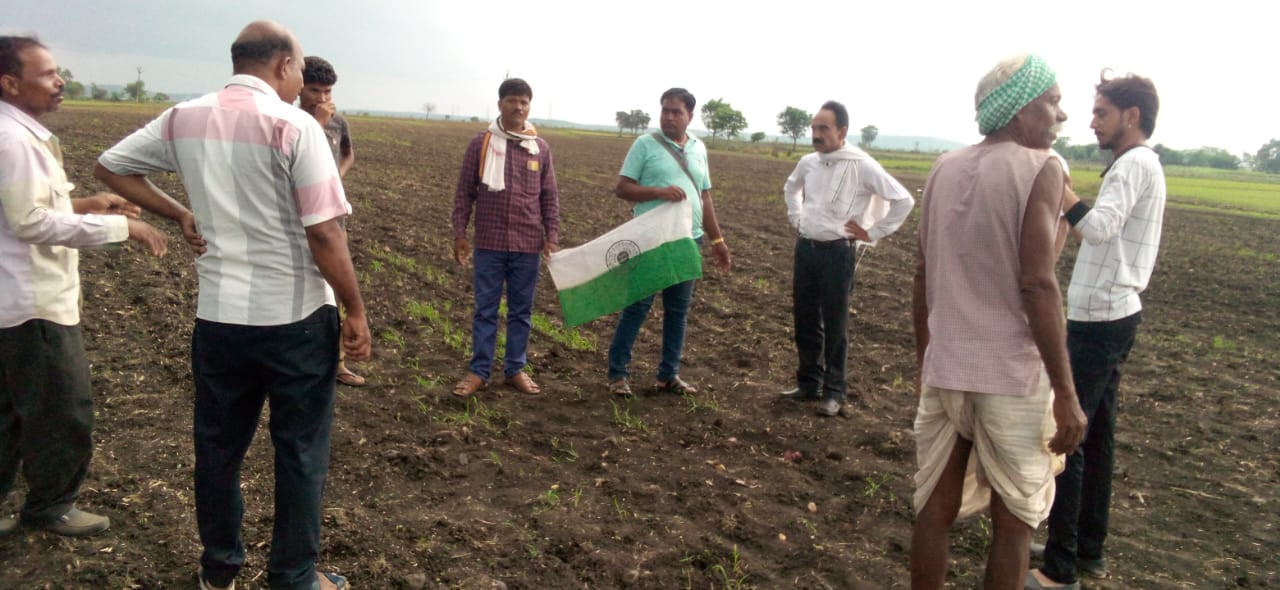Tribal woman’s murder in Guna puts spotlight on tribal rights

Tribal rights activists say that there are many incidents of atrocities against the tribals that have gone unreported (Photo: Pradeep Srivastav)
On July 2, Rampyari Bai, a tribal lady was fighting for her life after allegedly being set on fire by a group of individuals in the Dhanoria village of Madhya Pradesh, for rebuffing their attempt to invade her family land. The victim was battling for her life with severe burn injuries when her husband, Arjun Saharia reached his farm. He claimed to have seen three villagers who escaped the scene in a tractor with their families. Later, the victim told the police that six people, including four men and two women had doused her with diesel, set her ablaze and then fled. Since the woman’s health was critical, the police official claimed, she was sent to a hospital in Bhopal for additional care. He added that while searching for the third suspect, who has fled, two of the accused were apprehended.
This tragedy has highlighted the vulnerability of the tribal people of Madhya Pradesh, who make up 22 pc of the state’s population. Madhya Pradesh has the highest tribal population in India, and it has also been registering most cases of atrocities against the tribal population for the past five years. Crimes against Scheduled Tribe (ST) communities increased by 9.3 pc to a total of 8,272 cases in the year 2021, says the National Crime Records Bureau (NCRB). Madhya Pradesh has seen a steady rise in the number of Scheduled Tribe atrocity cases. Up from 1,922 in 2019 and 1,868 the year before, 2,401 instances were reported in 2020.
On June 29, 2021, police in the Dewas district of Madhya Pradesh (MP) discovered five half-decomposed bodies, reportedly of tribals, in a 3 metre deep trench. Among them, three were minors. After investigation, police detained nine persons for the murders and they claimed that a love affair was the reason for this homicide.
In May 2022, two tribal men named Sampat Batti and Dhansa were beaten to death on suspicion of cow slaughter in Madhya Pradesh’s Seoni district. A group of 20 men entered the house of victims, accused them of killing a cow and allegedly beaten them. The police investigated the case and charged six out of the 20 with murder. They started searching for the accused but till date, only two-three suspects are taken into custody.
Tribal rights activists say that these incidents are not the only ones. They say that there are innumerable atrocities committed against the tribals and the Dalits. Last month, eight men in Neemuch had chained a 40-year-old tribal man named Kanhaiyalal Bheel to a car and accused him of stealing. He was then assaulted and dragged. He succumbed to his injuries while he was being taken to a hospital.
“Lack of education and government policies are the main reasons behind marginalization of tribal societies in the country,” Pradeep Srivastav, a member of All India Kisan Kheti and Majdoor Sangathan, a farmers and workers union, tells Media India Group. Srivastav adds that instead of protecting the victims, the police tend to help the upper castes and the rich.
‘‘Police officials frequently refuse to cooperate with the indigenous people. The upper caste individuals easily control them via money, meaning that no action will be taken against the accused. Social activists are the ones who raise voice and defend them,” adds Srivastav.
The activists say that there are many incidents of atrocities that have gone unreported and even those that were reported to the police have rarely ended in a conviction. According to the latest National Crime Record Bureau (NCRB) data, 37,751 SC/ST atrocities cases are now pending in courts, with 10,302 cases relating to Scheduled Tribes and having a 36 pc conviction rate.
“The state government is not ready to accept the fact that the tribal people are in danger, but the data revealed the reality. Tribals are feeling unsafe in MP due to the rise in crime against them. They are being thrashed for land and also being harassed by false cases lodged against them,” Dr Anand Rai, spokesperson Jai Adivasi Yuva Sangathan (JAYS), a tribal rights body, told media in a press conference.









